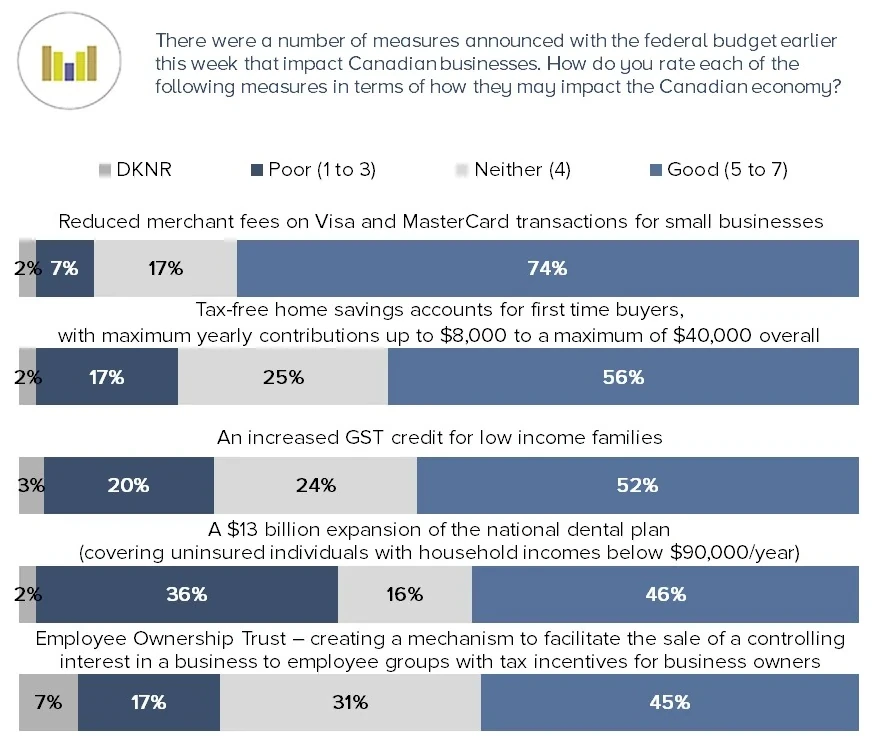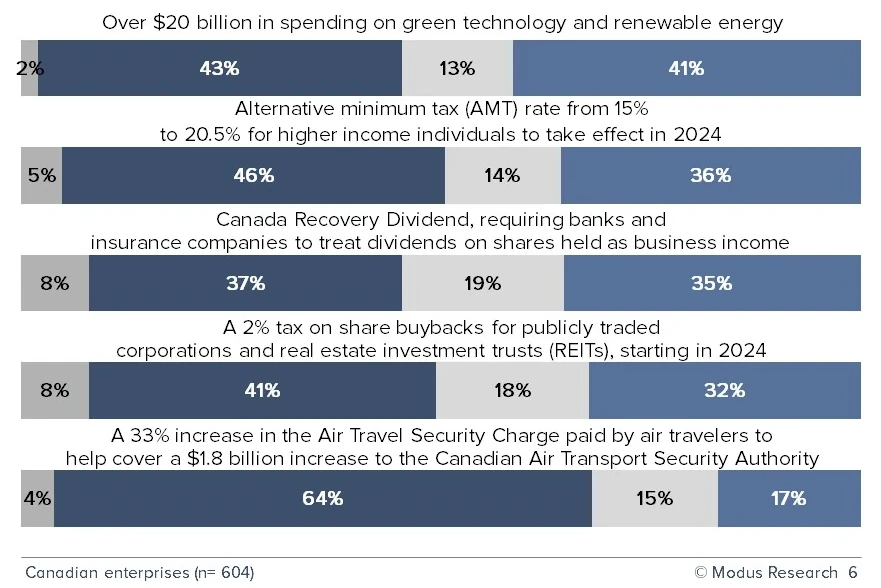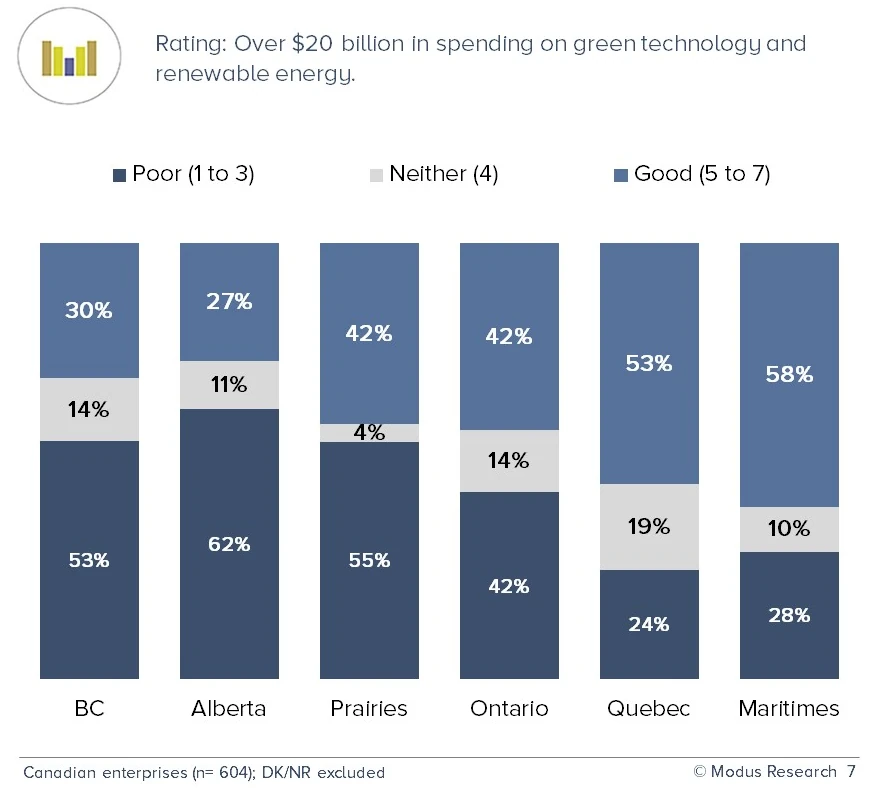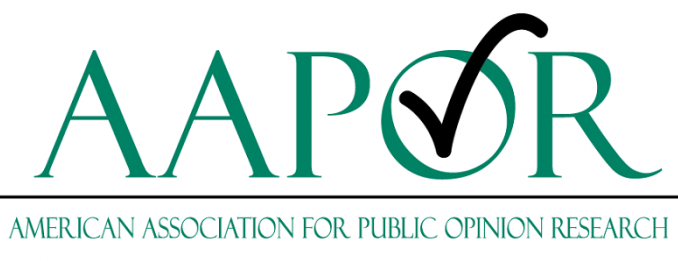In the latest survey from The Business Monitor, Canadian executives were asked about specific measures announced with the 2023 federal budget.
Canadian businesses are polarized on many of the measure announced with the 2023 federal budget.
Key findings in this release:
- Business polarization on budget measures
- Green spending regionally polarizing
- Top and bottom rated measures announced


Despite overall poor reviews of the budget, some measures are viewed favourably.
Three measures have majority support:
- Reduced merchant fees
- Tax-free home savings accounts
- Increased GST credit for low income families
Employee Ownership Trusts also enjoy robust support with a plurality rating it positively.
The least popular measure by a wide margin is the increase in the Air Travel Security Charge.Business leaders are polarized on a number of measures in the 2023 Budget.
There is strong polarization on a fair number of the budget measures:
- $20 billion on green tech and renewable energy
- Canada Recovery Dividend
- Alternative minimum tax increase
- Tax on share buybacks

Support for investments in green tech and renewables reveals a strong regional divide.
The overall polarization on green technology and renewable energy spending reveals a strong east-west division.
- West of Ontario majority opposition
- Ontario and the Prairies show strong polarization
- East of Ontario has majority support
Discussion
Spending and taxation is a key theme in these findings. Measures that involve little or no new spending/taxation are generally viewed favourably. Those that involve increased taxes or spending result in large levels of opposition. This reflects the overall assessment we reported last week showing spending as the main issue resulting in a poor overall grade for the budget.
Methodology
This edition of The Business Monitor was conducted from March 31 to April 4 using the Modus Business Panel – Canada’s only purpose-built, 100% probability-based B2B research panel. Because the Panel is built using random probability telephone sampling, it is valid to cite the margin of error for this survey. The survey is based on a representative sample of 604 Canadian managers and executives and has a margin of error of +/- 4.0% at a 95% confidence interval. The survey data are weighted by size and region according to the latest Statistics Canada data to help ensure representativeness for Canadian enterprises.




